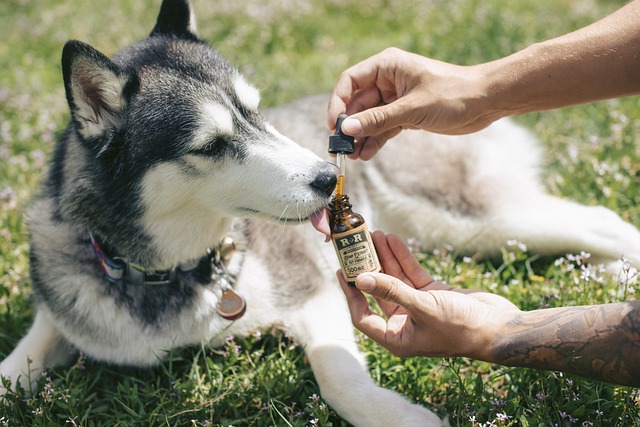TL;DR: Heavy Metals Testing for CBD products is vital for consumer safety and product integrity. Unintentional heavy metal contaminants like lead, mercury, and arsenic can pose significant health risks, so rigorous analysis through advanced testing methods detects and mitigates these risks. Global regulatory bodies set strict guidelines for acceptable levels of heavy metals in CBD products, with manufacturers needing to adhere through robust quality control and regular testing. Compliance builds consumer trust and ensures the long-term success of the industry, with best practices including validated testing, clean facilities, strict standards, and detailed documentation. Consumer awareness about Heavy Metals Testing for CBD empowers informed purchasing decisions.
In the rapidly growing CBD market, ensuring product safety through rigorous heavy metals testing is paramount. This article delves into the critical aspects of heavy metals testing for CBD products, exploring laboratory analysis methods, common contaminants, and regulatory standards. We provide insights on best practices for brands to implement quality control measures and empower consumers with knowledge to make informed decisions by reading labels and understanding test results.
Understanding Heavy Metals Testing for CBD Products

Heavy metals testing is a crucial aspect of ensuring product safety in the CBD industry, as heavy metals can act as contaminants and pose potential health risks to consumers. This process involves rigorous analysis to detect the presence of metallic elements like lead, mercury, arsenic, and cadmium in CBD products, which are often derived from industrial hemp plants. Given that these metals can enter the plant material during cultivation, extraction, or processing, implementing strict testing protocols is essential to safeguard both the quality and safety of CBD products.
For manufacturers, adopting comprehensive heavy metals testing procedures demonstrates a commitment to producing high-quality, safe goods. It involves utilizing advanced analytical techniques such as Inductively Coupled Plasma Mass Spectrometry (ICP-MS), which can detect even trace amounts of heavy metals with remarkable precision. By adhering to established industry standards and regulatory requirements for heavy metals testing in CBD, manufacturers can build consumer trust and ensure their products meet the highest safety standards.
The Role of Laboratory Analysis in Ensuring Safety

Common Heavy Metals Found in CBD and Their Potential Risks

CBD (Cannabidiol) products have gained significant popularity due to their potential health benefits, but it’s crucial to address the presence of heavy metals, which can pose risks to consumers. Common heavy metals found in CBD include lead, mercury, and arsenic, often unintentionally introduced during the cultivation, extraction, or manufacturing processes. These metals are not therapeutic and can accumulate in the body over time, leading to potential health issues.
Heavy Metals Testing for CBD is a critical step in ensuring product safety. This process involves rigorous analysis to detect and quantify any heavy metal contaminants. By implementing stringent quality control measures, manufacturers can guarantee that their CBD products meet safety standards. Regular testing not only protects consumers but also upholds the industry’s reputation and promotes trust among users who value clean, safe, and effective CBD products.
Regulatory Standards and Compliance for Heavy Metal Contaminants

In the realm of product safety, especially for CBD products, heavy metals testing for CBD is a critical aspect that cannot be overlooked. Regulatory standards and compliance are paramount to ensuring consumer protection. Authorities worldwide have established strict guidelines regarding acceptable levels of heavy metal contaminants in various products, including CBD oils, edibles, and topicals. These standards aim to safeguard public health by minimizing exposure to potential toxins like lead, mercury, and cadmium.
CBD manufacturers must adhere to these regulations through rigorous quality control measures during production. Regular heavy metals testing for CBD ensures that the final product meets the set safety criteria. This process involves using advanced analytical techniques to detect even trace amounts of heavy metals, guaranteeing a pure and safe product for consumers. Such compliance is vital in building consumer trust and ensuring the longevity of the CBD industry.
Best Practices for Brands to Implement Quality Control Measures

To ensure product safety, especially in the CBD industry, brands must implement robust quality control measures. One critical aspect is regular and comprehensive Heavy Metals Testing for CBD products. This process helps detect any harmful contaminants that might be present in the final product. Brands should adopt best practices such as using validated methods for testing, maintaining clean production facilities, implementing strict raw material standards, and documenting every step of the manufacturing process.
Additionally, establishing a robust quality assurance system that includes regular audits and ongoing monitoring can help identify potential issues early. Brands must also keep up-to-date with industry regulations and guidelines, ensuring compliance with relevant standards for heavy metals testing in CBD products. This commitment to quality control not only safeguards consumer health but also builds brand reputation and trust.
Consumer Awareness: Reading Labels and Understanding Results

Staying informed is a vital step in ensuring product safety, especially when it comes to purchasing CBD products. Consumer awareness plays a crucial role in the growing market for cannabidiol (CBD). One essential aspect is understanding the significance of heavy metals testing. By reading labels and comprehending the test results, consumers can make informed choices about their purchases.
Labels often provide critical information regarding product safety, including details about any heavy metals testing conducted. This allows buyers to identify potential contaminants and ensure that the CBD products they consume are free from harmful substances like heavy metals. Understanding the testing process empowers individuals to support brands that prioritize quality and adhere to safety standards, especially when it comes to Heavy Metals Testing for CBD.
